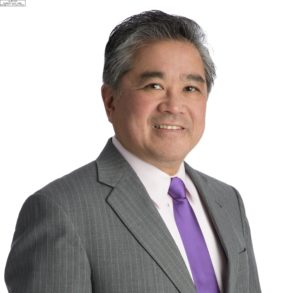
By Patrick Shelby
LAW WEEK COLORADO
Attorneys with Dorsey & Whitney LLP represented Golden Leaf Holdings, currently operating as Chalice Brands, in its $9.75 million purchase of cannabis dispensary chain Homegrown Oregon on May 19.
“We have been diligently searching for the appropriate footprint expansion for our retail business in Oregon that represented the right fit and to be in a position to fund the acquisition. Homegrown [Oregon]’s culture aligns perfectly within ours and provides an exceptional geographic compatibility with Chalice and offers an expansion into parts of Oregon,” Jeff Yapp, GLH and Chalice Brands president and CEO, said in a media release.

Headquartered in Toronto, Chalice Brands, is a public company specializing in production, processing, wholesale, distribution and retail with several dispensaries in Portland. Chalice Brands officials said that Homegrown’s profitability made this a highly accretive acquisition for company earnings per share.
“The completion of this transaction increases our retail store footprint to 12 locations in the state of Oregon, supported by our own award-winning cultivation operations, our production facilities in Portland and our internal wholesale team covering the state. Chalice has set a target to achieve 5% market share in Oregon while we grow in other markets. Homegrown helps us progress toward that goal,” Yapp added.
“Management is excited to combine with Homegrown and fully expects to continue its migration to better valuations for shareholders as we continue to execute our acquisition strategy. As part of our West Coast-focused growth strategy, we will continue to seek acquisitions like these to demonstrate that we are good allocators of capital,” John Varghese, Chalice Brands executive chairman, said.
Chalice Brands is developing a portfolio built around the recognized brands of Chalice Farms, with a focus on health and wellness. The Fifth and Root vegan skin care line operates nationally through the Chalice Farm website and has operations in Oregon and California.
Dorsey & Whitney Partner Kenneth Sam led the Denver-based legal team that represented Chalice Brands in the transaction.
“Chalice Brands was one of the companies that we assisted in listing in Canada. They started out as a U.S. operator in Oregon. We did a go-public transaction into Canada on the [Canadian Securities Exchange] (CSE),” Sam explained during an interview.
“About three years ago, the Colorado Legislature changed the rule to permit public company ownership of cannabis companies. And once they did that, established cannabis companies in Colorado, who had been doing business for nearly five years, started to take advantage of the going public structures that were available in other states, but precluded in Colorado because of the legislation,” – Kenneth Sam, Dorsey & Whitney Partner
Legal experts in tax, regulatory and securities law assisted in the complex acquisition, which Sam said is standard operating procedure for the group. Attorney Sativa Rasmussen from Dorsey’s Seattle office, who has extensive Pacific Northwest and California regulatory experience, played a key role in issuing securities to complete the successful deal.
During the past couple of years, the firm has assisted Chalice Brands on fundraising transactions, Sam said, including the recent closing of a private placement in the $10 million range. Chalice Brands also announced a second offering, said Sam, and the firm is presently involved in assisting the company with another fund rate and asset acquisition.
Similar to other active cannabis companies, Chalice Brands is seeking to grow its market share by acquiring new assets and using its public company platform for the acquisitions, Sam said.
According to Sam, the firm has specialized in Canada-US transactions for nearly 30-years and is considered one of the pioneering law firms for representing U.S. cannabis companies going public in Canada.
“We’re probably on more than half of the large Canadian public companies on one side of the transaction or another. Whether we’re representing the company itself or we’re representing underwriters and bankers in raising money for them. Or in some cases, we’re representing institutional investors that make investments into these companies,” Sam acknowledged.
Sam said he has been involved with the CSE for about 12-years and was asked to help write what has become the CSE’s definitive guide for U.S. companies going public in Canada. From 2009 to 2012, Sam oversaw Dorsey & Whitney’s Toronto office operations. “We set out the structures in which U.S. companies could go public in Canada,” said Sam about his Toronto experience. “And it’s those structures that have been used by dozens, if not hundreds of companies to take a U.S. operating company public in Canada.”
The capital markets, merger and acquisitions lawyer said his practice primarily involves transactions with public and cross-border elements. “They could be a Canadian or UK company that is doing a transaction in the U.S. or U.S. company that is doing a transaction in Canada, UK or Asia,” Sam said. “And because of that, I’ve probably built one of the biggest practices here in town but I have clients everywhere.”
Dorsey & Whitney continue to perform a significant amount of business transactions for smaller Canadian public companies and prominent international cannabis businesses, Sam said.

